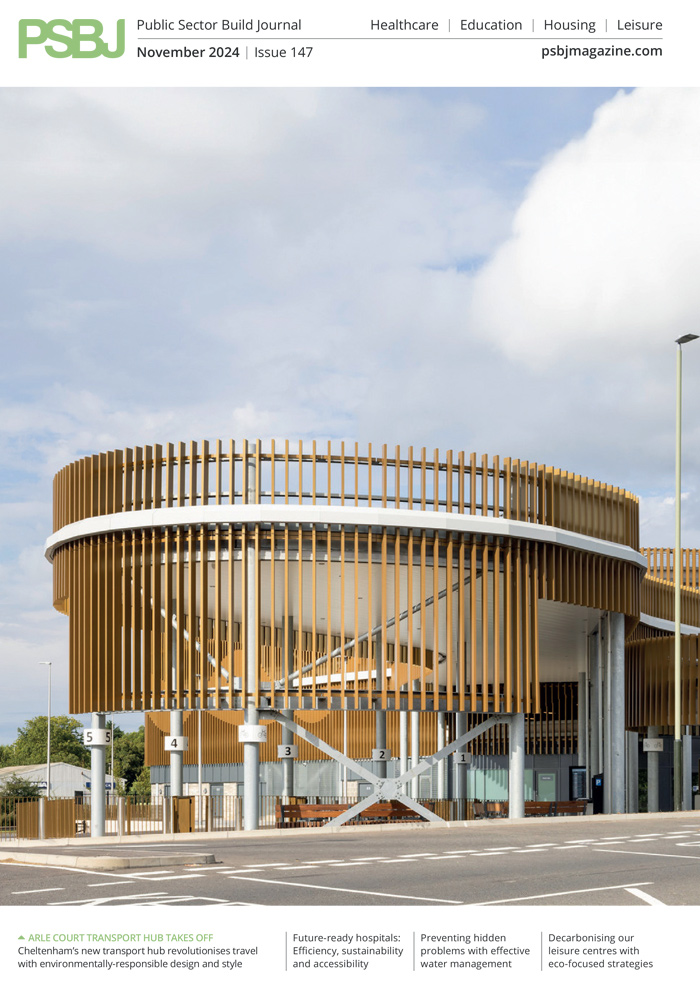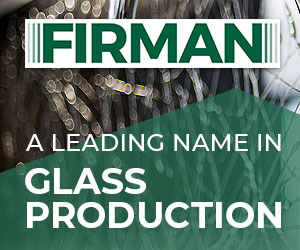For constructors and developers, the need to select efficient and intuitive building systems is a vital aspect of any project. Heating is a prominent part of this overarching concern, with smart controls growing in popularity for both residential and commercial properties that use underfloor heating technology. With that in mind, Franz Huelle, Head of Technical at REHAU Building Solutions, explores the popularity and potential of these solutions.
REHAU
Efficient and adaptable heating systems remain a key objective for those building and specifying commercial and residential properties, and the need to select the best possible solution is only becoming more pressing. Alongside this, end-users are now becoming increasingly aware of smart control technology, and how it can provide greater levels of control over their system, its performance and its effects on the built environment.
Bearing in mind that the world market for smart controls has more than trebled in size since 2017, it is unsurprising that property owners are more aware of better ways to heat their premises. This advancing technology allows for greater choice when heating buildings, and when combined with innovative solutions such as underfloor heating, opens up opportunities to reduce bills and increase energy efficiency through advanced heating control.
Benefits of underfloor heating
The benefits of underfloor heating from an occupant’s perspective have long been well-documented. They include better heat circulation, which helps better prevent the creation of thermal bridges and cold spots that can lead to draughts, and subsequent mould growth and damage.
The even distribution of underfloor heating also reduces air movement and allergen circulation, in turn reducing the amount of dust and dust mites in the ambient air, resulting in a healthier indoor climate. Most obviously for the occupant, because an underfloor heating system is built into the floor, underfloor heating systems allow for greater living and working space, and can open up exciting new room design possibilities.
Yet for many building owners, the key draw of underfloor heating is that, in contrast to conventional radiator-based systems, it allows for a more uniform distribution of heat. As a result, a temperature of about 20º is sufficient for ensuring optimum occupant comfort. This lower temperature can be translated into reduced energy bills, with a drop of only 2º allowing heating cost savings of up to 10%.
Furthermore, because underfloor heating requires less hot water to heat an open space, and uses a lower water temperature of 45º, it is more efficient than its radiator counterparts. Consequently, when viewed in terms of total cost of ownership and ongoing costs, the benefits of selecting such a system are clear to contractors and developers.
Smart control combinations
Though the financial and convenience-based appeal of these systems certainly make them appealing options, these benefits can be again augmented through the use of smart control technology. Specifically, by adopting heating controls that offer adjustable temperature on a room-by-room basis, a level of modularity to suit changing building demands and functions, and the ability to meet fluctuating demand based on time-of-day and working patterns, overall efficiency can be further improved.
As such, smart technology is clearly very attractive and opens up a wealth of possibilities. However, building engineers need to balance this growing desire for smart technology with ensuring such solutions are adaptable and practical for the end-user. Additionally, by choosing controls with excellent ease of installation that can be simply configured and operated, specifiers are better able to meet highly variable residential and commercial heating demands.
Because of this, specifiers are also able to better guarantee that these systems suit a diverse and ever-expanding range of buildings and applications, and help occupants realise further energy efficiency and cost benefits. This is particularly the case when specifying high-end heating solutions for new or refurbishment projects, such as underfloor heating. For these builds, smart controls are often a sought-after addition to optimise and automate building energy usage, further enhancing occupant comfort.
Future-facing innovations
Alongside providing further modularity and efficiency for underfloor heating systems, the latest smart control devices also offer a high degree of adaptability. Using data from their own sensors and weather patterns gleaned from the internet and occupants’ habits, these latest models can offer more energy-efficient heating schedules, resulting in further savings.
Alongside this, the increasing use of geofencing technology in such solutions, which determines occupant location to help inform when buildings require heat, offers further avenues for efficiency and convenience and also provides the means for remote maintenance. Consequently, the technology has evolved to a level where it can continually adapt how it heats individual zones in order to ensure no energy is being expended unnecessarily. This includes shutting off heating during periods of warmer weather or reducing activity at times when it is not required – for example, in office blocks after the end of the working day.
In conclusion, key stakeholders in project construction must select appropriate heating system solutions based on anticipation around costs and efficiency. While underfloor heating systems offer clearly valuable benefits to both the developer and end-user, their appeal is strengthened still when combined with smart control technology. Implemented effectively, these solutions can minimise installation costs while allowing key stakeholders to meet increasingly high specifications within the tight construction times mandated by multiple sectors. As such, it is clear why underfloor heating systems, regulated with smart control technology, are increasingly seen as a go-to option for developers and contractors.









